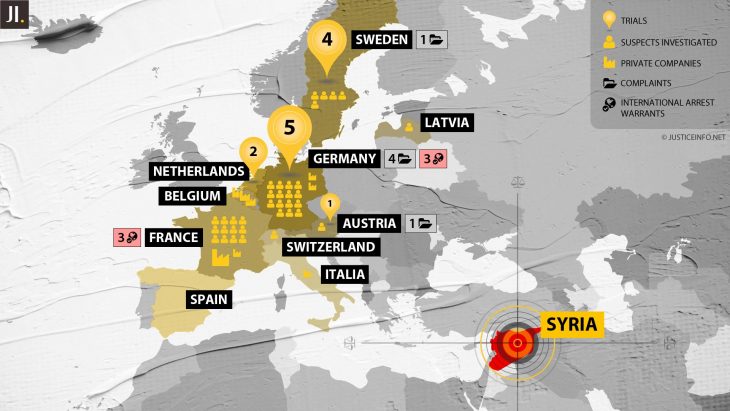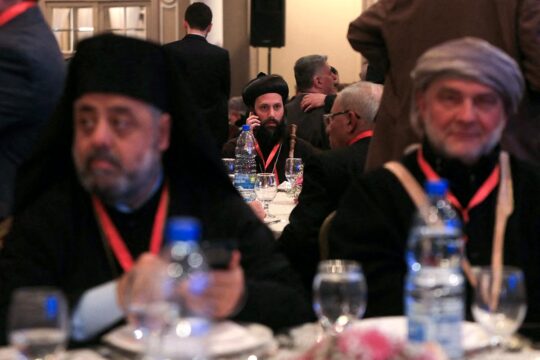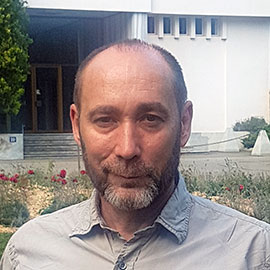Five types of indicators can be distinguished illustrating judicial initiatives before European courts related to international crimes committed in Syria since 2011: effective trials, ongoing investigations and cases, prosecutions against private companies and their executives, filing of complaints by victims and NGOs, issuance of international arrest warrants.
Germany is the only country where these five modes of action can be identified. It is the country with the highest number of trials to date, the highest number of suspects already awaiting trial and the highest number of complaints. German actions were also used as a model by the complainants in Austria and, this week, in Sweden. It was Germany that led the way again by issuing the first international arrest warrant before France followed suit.
With five trials to its credit (six if one considers the fact that one of the accused has undergone two separate trials), at least sixteen individuals awaiting their trial, three international arrest warrants against a senior leader of the Assad regime and against two Daesh commanders, repeated complaints filed between 2016 and 2018 (one of which targeted a Syrian telecommunications company and a German surveillance equipment company), Germany offers the image of a liberal and determined use of the principle of universal jurisdiction, which allows it to prosecute alleged perpetrators of international crimes regardless of their citizenship or the place where they were committed.
Germany, Sweden and France on the front line
In terms of trials, Sweden is doing just as well, with five individuals tried since 2015 in four cases, and two suspects awaiting trial. France is lagging further behind, although it just recorded its first arrest last week, and its specialized war crimes unit is investigating about 25 cases. For the time being, this country stands out especially on the issue of lawsuits against private companies. An investigation has been launched against the surveillance equipment company Qosmos, for complicity in torture and crimes against humanity. Most importantly, there is the case of the Lafarge industrial company, a world leader in building materials, of which eight senior officials, including two former chief executive officers, are being prosecuted under criminal law, while the company itself is accused of complicity in crimes against humanity, financing a terrorist enterprise and endangering the lives of others.
Belgium has also been vigilant against three Flemish chemical companies, which were sentenced this month to several hundred thousand euros in fines for illegal exports to Syria, with two of their executives facing prison sentences, including one of them being sentenced to one year in prison.
Behind the countries at the forefront of the judicial effort, the landscape is much more modest. Austria has completed a trial, which is on appeal, and is investigating a second case against a former intelligence general in Rakka, eastern Syria. The Netherlands, after having tried one of its citizens, has just opened a trial in absentia against two other Dutchmen who went to fight in Syria. The country is forced to limit itself to its own nationals. So did Latvia, which also judged one of its citizens. Switzerland, whose war crimes services are criticised for their low ambition, has had an investigation opened in 2016 against a Syrian asylum seeker. As for Spain, the only complaint it registered was eventually dismissed for lack of jurisdiction.
Indiscriminate targets
Judicial initiatives and the number of trials are expected to continue to increase, particularly in the three flagship countries, Germany, Sweden and France. It should be noted that, while complaints filed by victims and NGOs mainly target officials of President Assad's regime, trials are more indiscriminate. Islamist groups Jabhat al-Nusra, Daesh, Ghuraba al-Sham, Suleiman Company, as well as members of government forces or the Syrian Free Army have been targeted in the trials conducted so far.







